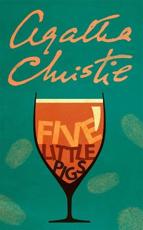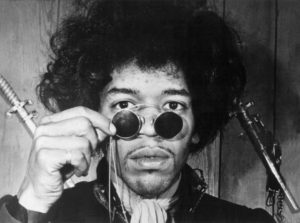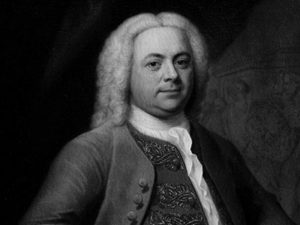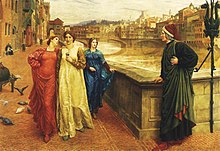
Poirot Score: 89
Five Little Pigs
☆☆☆☆☆
Explanation of the Poirot Score:
This book sets Poirot an impossible problem. To gain a pardon for a convicted murderer who died fifteen years ago in prison. It is exquisitely structured with the five different ‘little pigs’ giving their eye witness accounts of the events leading to Amyas Crale’s murder. Each one, unknowingly, gives a separate piece of this puzzle to the listening Poirot.
Click here for the Review: plot spoilers ahead
Trivia
Dedicated to Stephen Glanville
Stephen Glanville, (1900 – 1956) was an academic historian specialising in ancient Egypt, and the first Oxford man (Lincoln College) to be elected Provost of King’s College, Cambridge. He was a close friend and colleague of Max Mallowan, and seems to have been very supportive to Agatha Christie when Max was away during the Second World War. He encouraged Christie to set a book in ancient Egypt: see Death Comes as the End, and the play, Akhnaton. It is not clear just how close Stephen Glanville and Agatha Christie were at this time. They clearly enjoyed each other’s intellects.
The Adventures of Sir Amyas Leigh: Westward Ho! or reality from fiction
Amyas Crale has an unusual Christian name. We are told Amyas’s mother liked ‘Kingsley’: just as Agatha Christie’s mother’s favourite book was Agatha’s Husband, hence her own name. Amyas Leigh is the hero of a book by Charles Kingsley (1819 – 1875). Kingsley was Chaplain to Queen Victoria, Professor of History at Cambridge University and private Tutor to the Prince of Wales. He knew Thomas Carlyle, John Ruskin, Charles Dickens and Alfred Lord Tennyson. He was a social reformer; like Dickens he used writing as an instrument for change. Unusually for a high Victorian clergyman, Kingsley was sympathetic to Darwin’s new theory of evolution.
Kingsley’s book Westward Ho! Or The Voyages and Adventures of Sir Amyas Leigh, Knight of Burrough, in the County of Devon, in the reign of Her Most Glorious Majesty, Queen Elizabeth, Rendered into Modern English by Charles Kingsley, was a best seller. Amyas Leigh sailed with Sir Francis Drake. The title of the book comes from the ancient call of river boatmen on the Thames (eastward ho! westward ho!). The comedy Westward Hoe by John Webster and Thomas Dekker in 1604, provoked Ben Jonson and others to pen a comic repost, Eastward Ho, which landed them in prison for its anti-Scottish sentiment: an unwise thing to write with James I watching.
Viola in Twelfth Night says:
‘Then westward-ho! Grace and good disposition
Attend your ladyship!’
Kingsley’s Westward Ho! created a tourist interest in North Devon. In 1863 The Westward Ho! Hotel was built and a support village grew up around it, and so took its name from the hotel too. Westward Ho! is the only place name in the United Kingdom that contains an exclamation mark. In April 1925, Westward Ho! was the first novel to be adapted for radio by the BBC.
Lady Dittisham
 The view of Dittisham across the river Dart.
The view of Dittisham across the river Dart.
Dittisham is a very pretty little village that can be seen across the Dart from the Battery garden at Greenway, where Christie lived. Christie often makes up aristocratic names from places she knew (Lord Edgware, the Duke of Merton, Lady Dittisham). It is rather appropriate that Elsa Greer becomes Lady Dittisham, as she is painted by Amyas, with Dittisham and the Dart Estuary in the background, although they are not described in the book.
Brook Street, London W1
Lord and Lady Dittisham have a town house in Mayfair, in Brook Street, but Christie does not give the number. Brook Street has two blue plaques, to two great musicians in next door houses:
23 Brook Street: Jimi Hendrix — guitarist
25 Brook Street: George Frideric Handel
Handel’s House is now a museum with a wonderful series of best value for money chamber concerts, where you could sit in his parlour listening to live music, when museums were open. Handel composed the Messiah in Brook Street.
Hemlock and The Death of Socrates:
‘I even, fool that I was, took them back into the library and read them out that passage from the Phaedo describing Socrates’ Death.
He [Socrates] walked about and, when he said his legs were heavy, lay down on his back, for such was the advice of the attendant. The man who had administered the poison laid his hands on him and after a while examined his feet and legs, then pinched his foot hard and asked if he felt it. He said “No”; then after that, his thighs; and passing upwards in this way he showed us that he was growing cold and rigid. And again he touched him and said that when it reached his heart, he would be gone. The chill had now reached the region about the groin, and uncovering his face, which had been covered, he said – and these were his last words – “Crito, we owe a cock to Aesculapius. Pay it and do not neglect it.”
Harold North Fowler, Trans. Phaedo. 17th ed. Cambridge: Loeb Classical Library, 1990.
What on earth Meridith Blake thought he was doing distilling hemlock, a Class A drug, the novel really does not explore. The coroner severely critises him, but I would have thought he should have had a prison sentence. Meridith just says ‘Pleased with my little bit of knowledge. Blind, conceited fool. I pointed out that damned coniine’: and this is to a woman whom he knew was suicidal. Meridith was the cause of Amyas’s death.
A bowl of Innias From Bagdad
 Now known as Zinnias. Zinnia peruviana was introduced to Europe in the early 1700s from Central and North America. They are bright annuals, grown easily from seed, now found through the Middle East.These days we take as the norm fruit and fresh flowers from around the world: roses and beans from Kenya, New Zealand Lamb or Peruvian Asparagus, on the shelves of our local shops all year round: in the 1940s it was still exceptional.
Now known as Zinnias. Zinnia peruviana was introduced to Europe in the early 1700s from Central and North America. They are bright annuals, grown easily from seed, now found through the Middle East.These days we take as the norm fruit and fresh flowers from around the world: roses and beans from Kenya, New Zealand Lamb or Peruvian Asparagus, on the shelves of our local shops all year round: in the 1940s it was still exceptional.
Age of Maturity: 21 yrs in 1941
Carla Lemarchant says ‘When I was twenty-one…I came into my own money. ..then, there was the letter. The letter my mother left for me when she died.’ Clearly Mrs. Crale had instructed her solicitor not to send her daughter her letter until Carla reached her ‘age of Maturity’, fifteen years after Mrs. Crale’s death. The letter from the past that is the cause of this whole chain of events.
In 1941 in the UK the age of voting and marrying without your parents’ consent was 21 years old, along with ‘the key to the door’.
Elsa Greer was ‘only 20 years’ old. The charitable implication might be that she was too young to understand her irresponsible behaviour towards Amyas and Mrs. Crale. All the characters, including the 36 year old Elsa agree she knew exactly what she was doing: ‘I was responsible. I knew I’d got to have him‘.
In England in 1275, the age of consent for girls to sexual acts was 12 years old. It was raised to 13 years in 1875, and 16 years for heterosexual acts by 1920s. The ‘key of the door’ and the voting aged dropped to 18 years in the UK in 1970. It was 16 years for the recent Scottish Vote on Independence September 2014.
This Little Piggy:
This little piggy went to market,
This little piggy stayed home,
This little piggy had roast beef,
This little piggy had none,
And this little piggy cried wee wee wee all the way home
The first line of this Nursery Rhyme appears in “The Nurse’s Song” Book of 1728. It is a counting game with the five toes of a child, with the ‘wee, wee, wee’ being the tickling/giggling bit. What is odd about this counting rhyme is there is no mention of any numbers [one to five], as opposed to Ten green bottles’ or ‘Five little speckled frogs’.
‘Her faithful Dobbin’ see the Trivia to The Body in the Library for this [Meredith Blake’s adoration of Caroline Crale].
Miss Williams’ pictures
Unusually in Five Little Pigs, all Miss Williams’ prints are described. Miss Williams ‘studied painting for a time as a girl, in Florence, … and knows and appreciates the great masters.’ This is presumably why she chooses the Botticelli Prima Vera from the Uffizi Gallery. Perhaps she went on a trip to Venice, hence the two water colours: possibly her own works. Miss Williams was born around 1876, and clearly has great distain for ‘modern Art’ as snorts with derision about Amyas Crale and Epstein’s statues being in ‘The Tate’ [Gallery, London, UK], but enjoyed the ‘Pre-Raphaelites’ painted in the 1880s, when she would have been about 10 yrs.
Dante and Beatrice [1884] Henry Holiday ,Walker Art Gallery Liverpool
 George Frederick Watts’ painting ‘Hope’ is described in the book as ‘a blind girl sitting on an orange’ (Tate Gallery, London). Mr. Watts is credited in influencing the Pre-Raphaelites, especially Rossetti. Watts married the actress Ellen Terry when she was only 16 yrs old. The marriage lasted a year, until she ran off with someone else.
George Frederick Watts’ painting ‘Hope’ is described in the book as ‘a blind girl sitting on an orange’ (Tate Gallery, London). Mr. Watts is credited in influencing the Pre-Raphaelites, especially Rossetti. Watts married the actress Ellen Terry when she was only 16 yrs old. The marriage lasted a year, until she ran off with someone else.


